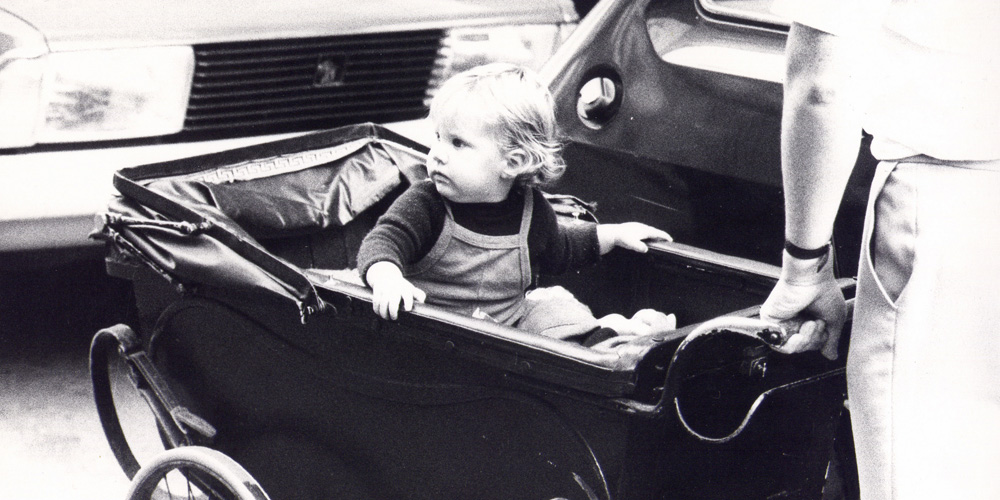Family and kinship for the 21st century
Finding affordable, good quality, flexible childcare has long been a headache for working parents. But the government has plans to address this issue. This September the amount of free childcare offered to three and four year olds in England will...
Finding affordable, good quality, flexible childcare has long been a headache for working parents. But the government has plans to address this issue. This September the amount of free childcare offered to three and four year olds in England will be doubled from 15 to 30 hours per week during term time. Although the government has committed to spend £6bn on childcare by 2020, a fifth of nursery providers do not plan to offer the new 30 hours of childcare per week.
Councils and providers are concerned that the funding will not be adequate to cover the increased business costs they will incur. Indeed, whilst nurseries cannot charge for the 30 hours some nurseries have introduced a charge for food or asked parents to chip in a voluntary contribution. They are also worried that doubling free childcare too quickly, and without the necessary measures in place, could impact on the quality of the care provided. In addition the Pre-School Learning Alliance have cautioned that extended free provision for three and four year olds could raise costs for parents seeking nursery places for younger children.
Limited state-provided nursery care and the expense of private childcare has frequently been in the news over the past decade with parents having to weigh up whether it is affordable to go to work before their children reach school age. This dilemma is particularly stark in London where families spend an average of £15,700 a year on nursery places for their children. Whilst the current government could, and should, do more to support families struggling to afford pre-school childcare, these problems have their roots in the mid-twentieth century social welfare policy. Society has changed over the past 60 to 70 years, but welfare provision has struggled to keep a pace.
When the welfare state was envisaged by William Beveridge in his report of 1942 he identified five giant evils in society: squalor, ignorance, want, idleness and disease. The resulting legislation introduced the NHS, pensions, national insurance, rent control and child benefit. The first incarnation of child benefit was payable whilst the child (except the eldest) was of school age, if apprenticed or in full-time education. Not included in this package of social reforms was childcare for children below school age. There was an assumption that these children would be cared for at home by their mothers or by members of their extended family who would have likely lived close by in the immediate post-war years.
Indeed, the Beveridge report stated: women as ‘housewives and mothers have vital work to do in ensuring the adequate continuance of the race’. The family services recommended by Beveridge’s report, such as home helps and some nursery provision, were intended not to facilitate mothers going to work, but instead to allow mothers some leisure time and extra support during household emergencies, such as periods of illness or the need to care for an older relative. Whilst full-time nursery care was provided by charities and the state during the second world war to allow mothers to go to work to assist in the war effort, there was an assumption that women would return to the domestic sphere once the war ended. The welfare state, then, followed a male breadwinner and female homemaker model, a model which fell out of step with changes in women’s labour patterns, especially by the 1980s as more women wanted to enter full-time employment.
The omission of substantive nursery-age childcare at the advent of the welfare state was compounded in the 1950s when new towns and housing estates were built as part of the drive towards a modern post-war Britain, with regenerated inner cities and a wave of purpose built communities. 60 years ago, in 1957 an ethnographic study by Michael Young (a Fabian) and Phillip Willmott of the Institute of Community Studies was published entitled Family and Kinship in East London. The study examined, in detail, family life and kinship networks in Bethnal Green, in London’s East End and a new housing estate in Greenleigh, Essex. Young and Willmott found that traditional family networks – with multiple generations living within a short distance of one another – became dispersed and diluted as the younger generations moved out of the city. One impact of this trend was relatives no longer being on hand to help share the load of familial commitments like childcare.
Fast forward 60 years and gaps in state provided childcare and the geographical distance of grandparents, and other friends and relatives, who could look after children whilst their parents go to work has left some parents facing being out of pocket if they go out to work and have to pay for private childcare. Indeed, the OECD found last year that the average UK couple spends a third of their income on childcare, compared to 15 per cent in other parts of the world.
Early years childcare was overlooked when the welfare state was envisioned because at that time, women were perceived as natural care givers who could often turn to relatives living close by when they were unable to provide this care. The government’s proposal for 15 extra hours a week of childcare for pre-school children is likely to be welcomed by parents who want to work but are struggling to meet nursery costs for their children. However, it is important that Labour puts pressure on May’s government to ensure that pre-school care providers can provide 30 hours of good quality childcare a week without being out of pocket.
Image: Jean-Pierre Declemy

